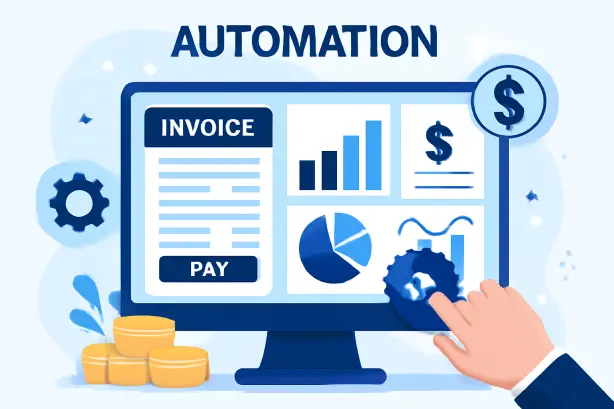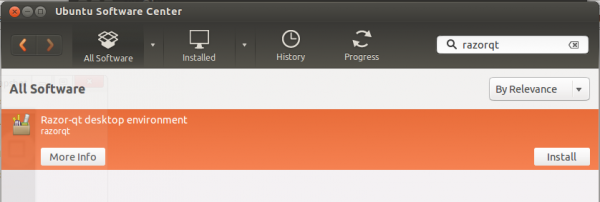Running a business means juggling a lot – marketing, customer service, product development, and, of course, finances. Let’s be real: handling finances manually is tedious, repetitive, and, frankly, exhausting. But what if there was a way to make it all easier? That’s where automation comes in. If you’re on the fence about whether automation is right for you, keep reading. This article will show you how automating your financial operations can save you time, reduce stress, and, yes, even save you money.
The Role of Automation in Financial Operations
So, what is financial automation? It’s the use of tools and software to handle routine tasks like invoicing, payments, budgeting, and reporting, all without you lifting a finger. Think about it: no more spending hours entering numbers, chasing payments, or double-checking invoices. With automation, you cut down on mistakes, speed up processes, and get more time to focus on growing your business.
Now that you know what financial automation is, here are 5 simple ways it can help streamline things like invoicing, cash flow management, and compliance, making everything run smoother and with fewer errors. All apply regardless of what ooperating system powers your business – Windows, macOS, or a Linux distribution like Ubuntu or Fedora.
1. Streamlining Invoicing and Payment Processes
Invoicing might seem like a small task, but when you’re handling multiple clients or customers, it can quickly become overwhelming. It’s easy to lose track of payments, forget to send invoices on time, or even make errors in your billing. Not to mention, chasing down late payments is never fun.
This is where automation really shines. By utilizing automated invoicing systems, you can generate invoices quickly and accurately. The best part? You don’t have to worry about sending them manually. These systems can be set to send invoices automatically, either on a regular schedule or as soon as a product or service is delivered.
Take a moment to think about the last time you manually created an invoice. How much time did it take you? Now, imagine having a tool that does it all for you with a few clicks. Automated invoicing tools even let you set payment reminders, so your clients never forget to pay. And if your business is growing, you’ll be able to scale without stressing over the extra work.
2. Enhancing Accuracy and Reducing Errors
Let’s be honest: we all make mistakes. It’s human nature. But when it comes to financial operations, errors can cost a lot more than just time. A missed payment, an incorrect invoice, or a wrong tax calculation could lead to lost revenue or even a compliance headache down the line.
That’s where automation steps in to save the day. Automated financial tools reduce human error by handling repetitive tasks with precision. For example, when you automate invoicing, you eliminate the chance of manual data entry mistakes. And when you automate bookkeeping or financial reporting, your numbers are automatically updated and reconciled, leaving less room for mistakes.
Sure, human oversight is still necessary; no system is perfect, but automation makes it so much easier to spot any discrepancies before they become major issues. Think of it as your built-in quality control system. By catching errors early, you can ensure your financial operations stay on track.
3. Improving Cash Flow Management
Cash flow is the lifeblood of any business, and managing it effectively is crucial to your company’s survival and growth. However, manually tracking payments and expenses can be tedious and prone to mistakes. If you’re constantly worried about whether you have enough cash to cover upcoming expenses or pay your team, that’s time and energy better spent elsewhere.
Thanks to automation, you can monitor your cash flow more closely through real-time updates and automated tracking. When you use tools that automatically track your incoming and outgoing payments, you’ll have a clear view of your financial status at any moment. Automated systems can even forecast cash flow trends, aiding you in making data-driven decisions that ensure your business remains stable.
For example, some financial automation tools allow you to set up automatic reminders for overdue invoices or payments. This proactive approach ensures that you’re always ahead of the game and can avoid cash flow bottlenecks that might otherwise sneak up on you.
4. Compliance and Reporting Made Easy
Tax season. Those two words alone are enough to make anyone break into a cold sweat. But staying compliant with tax laws and regulations is a critical part of running a business. The problem is, keeping track of all the ever-changing rules and deadlines can be a real challenge. Not to mention the headache of gathering all your financial documents for tax season.
Automation simplifies this process by keeping your financial records organized and up to date, making tax filing a lot less stressful. Automated systems can generate reports whenever you need them, saving you time and effort during tax season. They can even alert you when it’s time to file or remind you of upcoming tax deadlines.
Additionally, many automation tools are designed to help ensure your business stays compliant with relevant financial regulations. Whether it’s tracking tax rates or ensuring your financial statements are accurate, automation can help you stay on the right side of the law without breaking a sweat.
5. Cost Savings and Resource Optimization
Let’s be real: running a business is expensive. You’ve got salaries, overhead costs, marketing expenses, and more. So, it only makes sense to look for ways to cut costs and optimize resources wherever possible.
Automation can help reduce costs by cutting down on the need for manual labor. With automated systems handling routine financial tasks, you can free up your employees to focus on higher-level work. Not to mention, by reducing errors, you’ll avoid costly mistakes that can add up over time.
Consider payroll management as an example. Automating payroll can save you both time and money by eliminating the need for manual calculation and reducing the chances of errors. It’s just one example of how automation can help your business run more efficiently while saving you money in the long run.
Conclusion
So, there you have it. Automation is no longer just a nice-to-have; it’s a must for businesses looking to streamline their financial operations and stay ahead of the competition. By automating everything from invoicing to cash flow management, you can reduce errors, improve accuracy, and free up valuable time to focus on growing your business.







